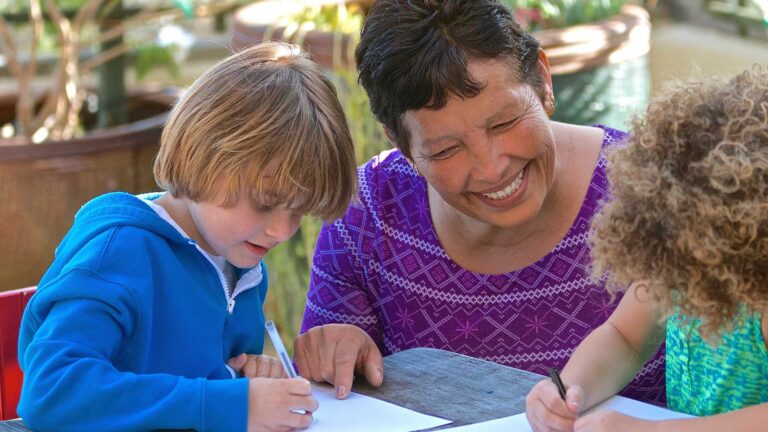Table of Contents
Why is community vital for families with neurodiverse children?
The importance of community is a cornerstone for every individual, but it becomes especially essential for families with neurodiverse children. Experiencing a sense of belonging, understanding, and acceptance can dramatically improve the lives of those navigating neurodiversity. A dedicated autism support community provides a robust platform that highlights the rights, resources, and support for children with autism and their caregivers.
At Texas ABA Centers, we are devoted to offering comprehensive support to families with loved ones on the autism spectrum in Plano, Katy, and Austin. Through our specialized autism services and informative blogs, we strive to address the critical question: Why is community vital for families with neurodiverse children?
In this blog, we will delve into the importance of community and how a supportive autism network can revolutionize the lives of families by fostering unity, encouraging acceptance, and sharing invaluable experiences. By coming together, we can create a nurturing environment that benefits everyone involved.
What is Community Support for Autism?
Community support for autism comprises networks of individuals, families, educators, researchers, and advocates who unite to foster awareness, acceptance, and comprehension of autism spectrum disorder (ASD). Autism, a neurodevelopmental condition, presents various challenges in social interaction, sensory processing, communication, and repetitive behaviors.

These autism communities aim to create environments where individuals with ASD can flourish, and their families and supporters can access resources and connect with others sharing similar experiences.
Operating both locally and globally, these communities utilize physical spaces, digital platforms, and events to build connections and disseminate knowledge. They offer a multifaceted approach to supporting children, parents, and caregivers through workshops, support groups, online forums, conferences, and diverse social activities. By engaging in these initiatives, autism communities provide vital educational and emotional support, empowering families and individuals to navigate the complexities of autism more effectively.
Exploring the Benefits of an Autism Community

- Promotes Social Interaction
For children with autism, social interaction can be a significant challenge. Autism communities provide a supportive environment where these children can develop and practice their social skills. Structured group activities and peer interaction opportunities help children learn how to navigate social situations, communicate effectively, and build meaningful relationships. This nurturing environment is essential for fostering confidence in social settings.
- Opportunities to Find Friendship
A common misconception about individuals on the autism spectrum is that they do not enjoy social interaction. In reality, many people with ASD feel isolated and suffer from higher rates of depression. Autism communities offer a safe space where children and adults alike can find friendship and camaraderie. Specialized programs and social events designed by these communities facilitate the formation of lasting friendships, which are crucial for emotional well-being.
- Enhancing Strengths and Talents
Many children with autism possess exceptional skills in areas such as mathematics, art, music, and technology. Autism communities focus on nurturing these strengths and talents by providing tailored programs and opportunities that allow these abilities to shine. Celebrating these unique skills not only boosts self-esteem but also fosters a sense of achievement and purpose. This focus on strengths can lead to significant personal and professional growth.
- Supporting Parents and Caregivers
Caring for a child with autism can present various challenges, and parents and caregivers often bear the brunt of these demands. Autism communities serve as a vital support network, offering resources, advice, and emotional support. Through these communities, parents can access the latest research, therapies, and educational strategies, empowering them to make informed decisions. The sense of companionship and validation found within these communities helps alleviate feelings of isolation and stress, providing a lifeline during difficult times.
- Sense of Companionship and Validation
Connecting with others who understand the journey of raising a child with autism creates a powerful sense of companionship and validation. Sharing experiences, tips, and challenges within the community helps parents realize they are not alone. Emotional support is vital for mental health and fostering resilience. The collective strength parents can find in these communities can also lead to advocacy efforts that promote autism-friendly policies and initiatives.
- Improves Mental Health
The support provided by autism communities significantly impacts the mental health of both individuals with autism and their caregivers. Access to a network of understanding and supportive peers can reduce feelings of isolation and depression. For caregivers, the ability to share burdens and receive emotional support can prevent burnout and improve overall quality of life. These communities serve as a sanctuary where mental health is prioritized and nurtured.
- Fostering Understanding and Acceptance
Autism communities play a critical role in educating the general population about autism spectrum disorder. Through workshops, seminars, and public events, these communities work to dispel myths and misconceptions about autism. These initiatives highlight the talents and challenges faced by individuals with autism, promoting empathy and inclusivity. This education helps to create a more accepting and supportive society, enabling individuals with autism to flourish without discrimination or prejudice.
- More Opportunities for the Autism Community
Autism communities create numerous opportunities for individuals with autism to engage fully in social, educational, and employment activities. By advocating for autism-friendly policies and environments, these communities help ensure that individuals on the spectrum have equal opportunities to succeed.
Where to Find Autism Communities
Finding the right autism community can profoundly impact the lives of neurodiverse families. Parents and caregivers cannot overstate the importance of community, as it provides essential support and resources. Here are several avenues to explore for finding supportive autism communities:
- Local Organizations
Many cities are home to local autism support organizations that provide a range of services, from support groups to workshops and recreational activities for children. These organizations often have a physical presence where families can connect, engage, and build a network of support. They serve as a vital resource for localized information and events tailored to the needs of the autism community.
- Online Platforms
Neurodiverse families can find various opportunities on the Internet and social media to create and join online autism communities. Websites, forums, and social media groups offer spaces where individuals can connect, share their stories, ask questions, and seek advice. These platforms provide a sense of community and support that transcends geographical boundaries, allowing individuals and families to find comfort and guidance from others with similar experiences.
- National and International Organizations
Well-established national and international organizations play a crucial role in supporting the autism community. Organizations like Autism Speaks, the Autism Society of America, and the National Autism Association offer extensive resources, information, and opportunities for connection. They provide educational materials, advocacy support, and forums for families and individuals to engage with a broader community. These organizations help unify efforts to promote awareness, acceptance, and understanding of autism on a larger scale, highlighting the importance of community for neurodiverse families.
- Educational Institutions
Schools and educational institutions that specialize in autism have dedicated communities offering support for parents and opportunities for children to interact and learn. These institutions provide tailored educational programs and foster environments where children with autism can thrive. Additionally, they serve as hubs for parents to connect, share experiences, and collaborate on strategies to support their children’s development.
- Therapeutic Centers
Therapeutic centers that offer interventions for children with autism have associated communities for parents and caregivers to network and share experiences. For instance, Texas ABA Centers acknowledge the importance of community and actively work to create supportive communities with their clients, local businesses, towns, and governments. These centers provide not only therapeutic services but also a sense of community and shared purpose that can be invaluable for families navigating the challenges of autism.
Texas ABA Centers: Your Support in Neurodiversity
At Texas ABA Centers, we recognize the profound importance of community for families navigating the challenges of neurodiversity. Being a parent of children with autism can sometimes feel isolating, but it doesn’t have to be. Knowledge is empowering, and knowing about organizations and groups that offer additional support can make a difference in your family life.
Let us be a part of your support network, whether through our specialized ABA therapy designed to enhance the development of your child with autism or through our diagnostic services, autism testing, and early intervention programs. Additionally, Texas ABA Centers hosts events that encourage socialization for both our clients and their families, helping to create a solid and connected community of support.
We are here to support you. Call us at (877) 771-5725 or contact us online.









